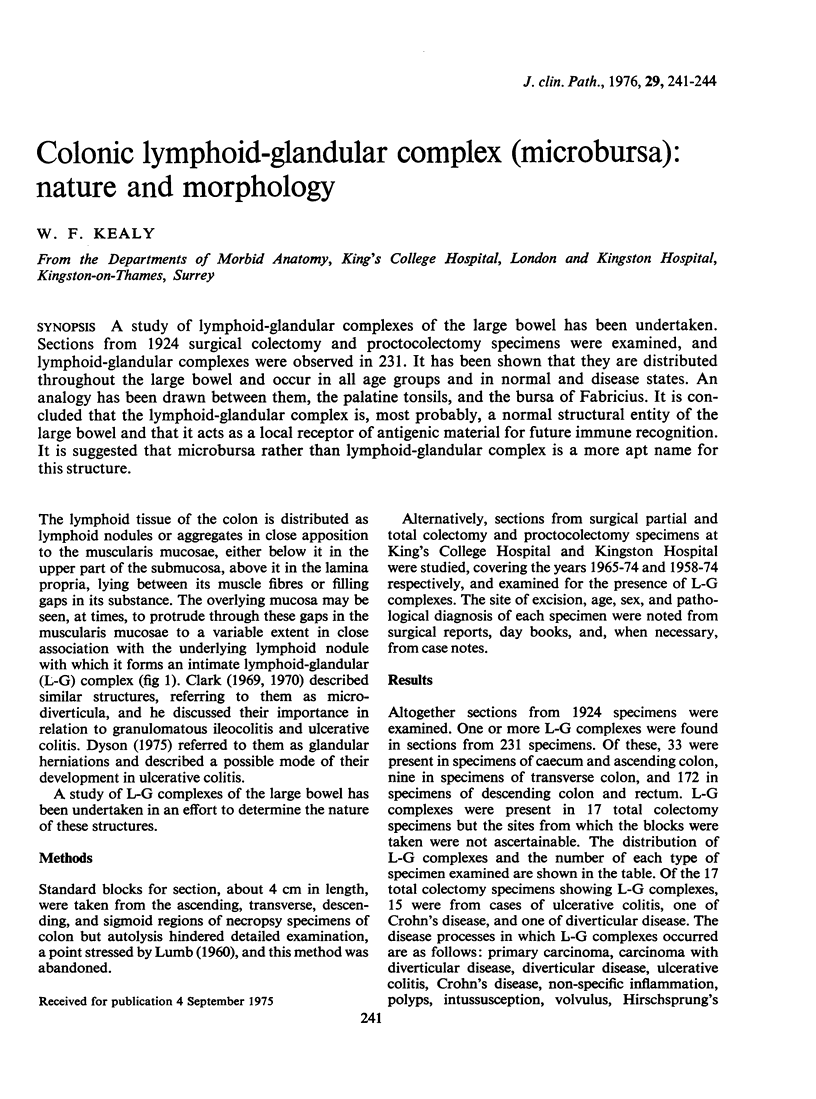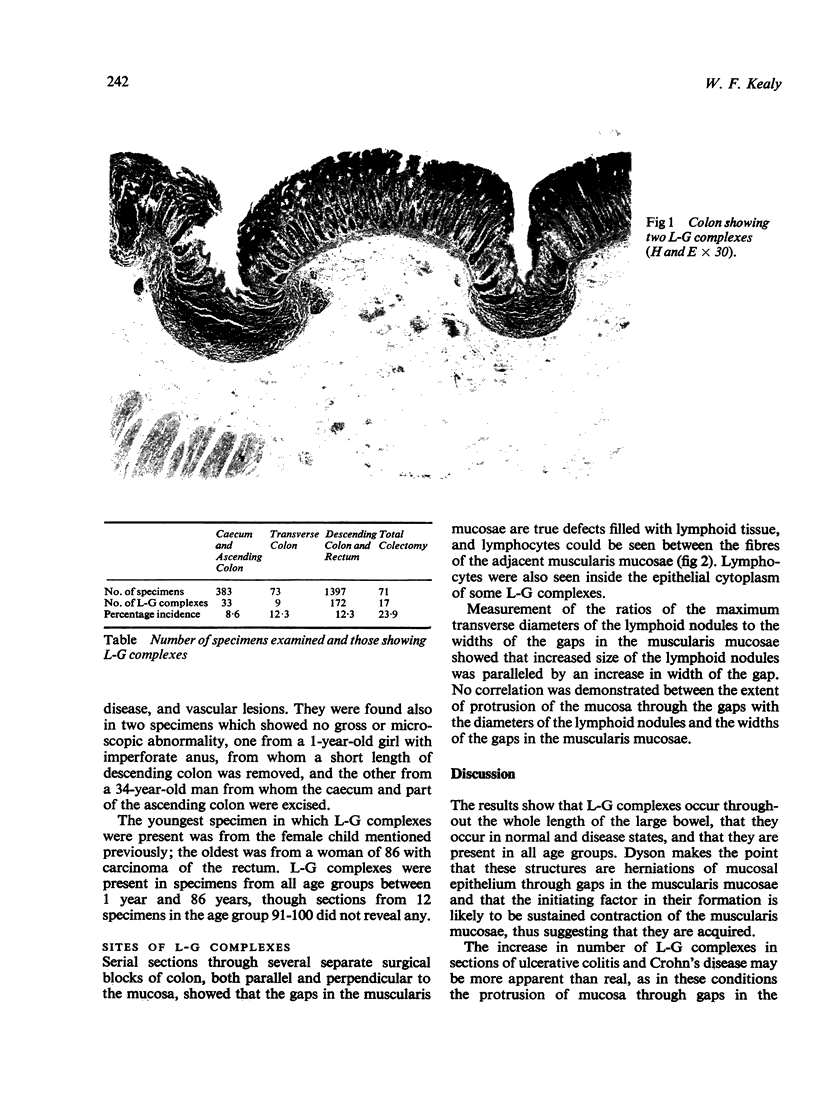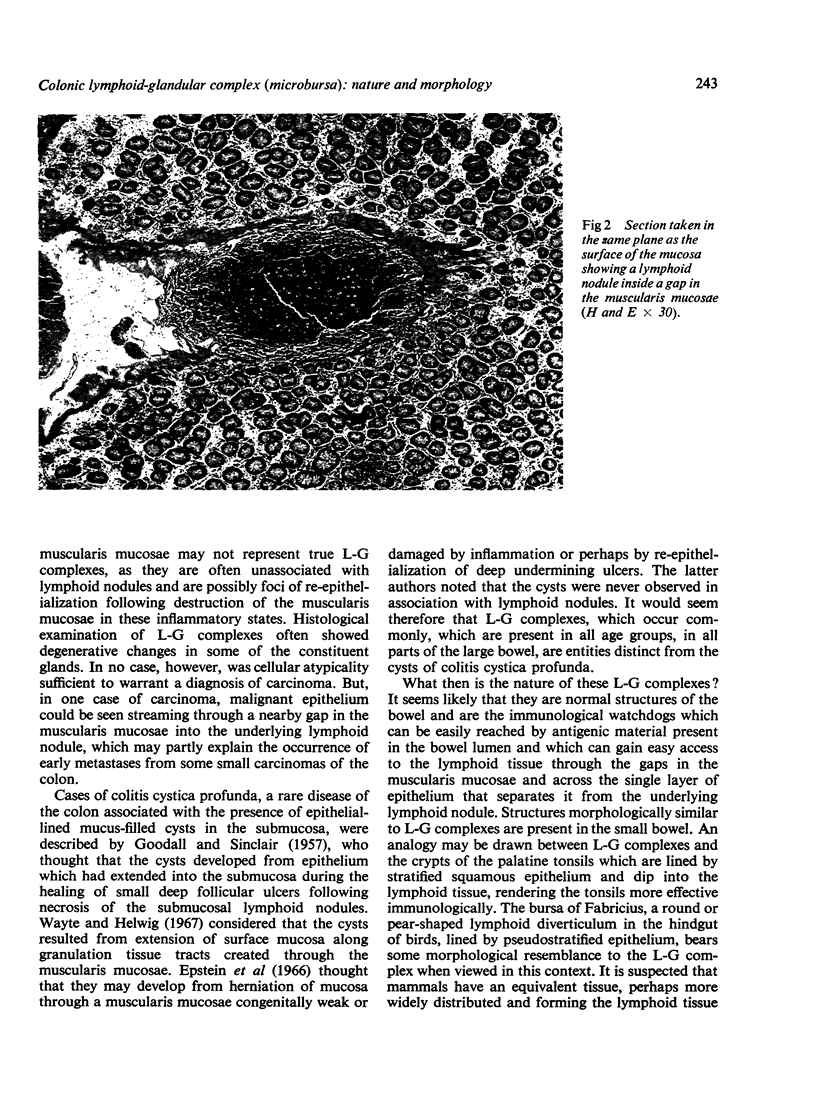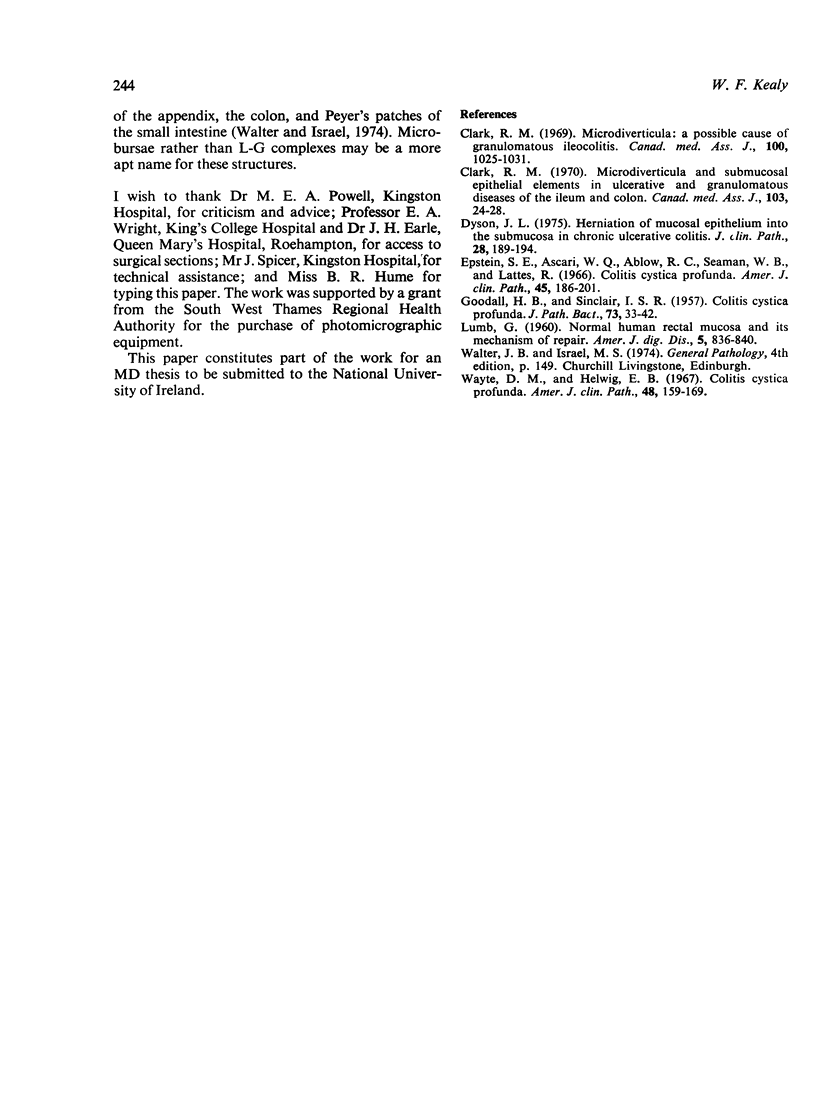Abstract
A study of lymphoid-glandular complexes of the large bowel has been undertaken. Sections from 1924 surgical colectomy and proctocolectomy specimens were examined, and lymphoid-glandular complexes were observed in 231. It has been shown that they are distributed throughout the large bowel and occur in all age groups and in normal and disease states. An analogy has been drawn between them, the palatine tonsils, and the bursa of Fabricius. It is concluded that the lymphoid-glandular complex is, most probably, a normal structural entity of the large bowel and that it acts as a local receptor of antigenic material for future immune recognition. It is suggested that microbursa rather than lymphoid-glandular complex is more apt name for this structure.
Full text
PDF



Images in this article
Selected References
These references are in PubMed. This may not be the complete list of references from this article.
- Clark R. M. Microdiverticula and submucosal epithelial elements in ulcerative and granulomatous diseases of the ileum and colon. Can Med Assoc J. 1970 Jul 4;103(1):24–28. [PMC free article] [PubMed] [Google Scholar]
- Clark R. M. Microdiverticula: a possible cause of granulomatous ileocolitis. Can Med Assoc J. 1969 Jun 14;100(22):1025–1031. [PMC free article] [PubMed] [Google Scholar]
- Dyson J. L. Herniation of mucosal epithelium into the submucosa in chronic ulcerative colitis. J Clin Pathol. 1975 Mar;28(3):189–194. doi: 10.1136/jcp.28.3.189. [DOI] [PMC free article] [PubMed] [Google Scholar]
- Epstein S. E., Ascari W. Q., Ablow R. C., Seaman W. B., Lattes R. Colitis cystica profunda. Am J Clin Pathol. 1966 Feb;45(2):186–201. doi: 10.1093/ajcp/45.2.186. [DOI] [PubMed] [Google Scholar]
- LUMB G. Normal human rectal mucosa and its mechanism of repair. Am J Dig Dis. 1960 Oct;5:836–840. doi: 10.1007/BF02232186. [DOI] [PubMed] [Google Scholar]




